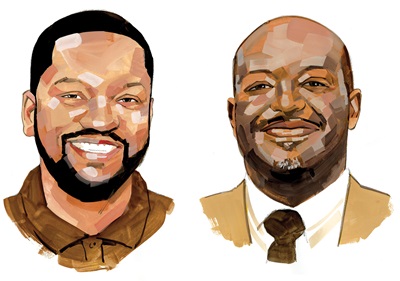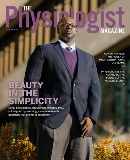Industry Insights
How to maximize opportunities for a career in industry.
 Each issue, we ask a trainee member to pose their career questions to an established investigator and mentor. Here, Ronald McMillan, PhD candidate at the University of Delaware and APS Porter Fellow, asks Irving Joshua, PhD, FAPS, professor and chair of the Department of Physiology at the University of Louisville, how to prepare for a career in industry.
Each issue, we ask a trainee member to pose their career questions to an established investigator and mentor. Here, Ronald McMillan, PhD candidate at the University of Delaware and APS Porter Fellow, asks Irving Joshua, PhD, FAPS, professor and chair of the Department of Physiology at the University of Louisville, how to prepare for a career in industry.
Q: How much emphasis do you put on obtaining a postdoctoral
position for a young physiologist interested in industry research?
A: The need for a postdoctoral experience as it relates to entering into an industrial research position depends on the requirements of the specific company. Many times companies
prefer to train the PhD in a specific research area in which they are expected to work. Prior postdoctoral experience may be beneficial for demonstrating the individual’s ability to work independently and, depending on the quality of the postdoctoral
experience, possibly demonstrating some leadership or administrative qualities. Most of the time, grant and manuscript writing experiences are not essential for conducting industrial research, although experience with writing reports is a part of
the responsibilities of industrial researchers.
Q: How did you increase your network? What tips do you suggest for a young investigator to expand their network?
A: There are a number of ways to increase or expand your science network. As
a graduate student, you should depend on your primary research mentor as the one who would introduce you to individuals in your research area who would ultimately become a part of your science network. Many departments like mine invite established
investigators in both academic and industrial research to participate in their seminar series and provide time for you to interact with them. In addition, when attending various national and local meetings students should initiate research discussions
with individuals who are prominent in the research area(s) that they are interested in. You would be surprised how many times scientists remember those interactions when they are searching for a postdoctoral fellow and your name is in the pool of
applicants.
Q: As a graduate student, outside of my current academic project, how do I acquire additional opportunities to gain experience in the research industry?
A: Many graduate students are pursuing their PhD in research laboratories
that have a number of other investigators (junior faculty, postdoctoral fellows, other graduate students). These represent opportunities for students to collaborate in research areas that may complement their PhD research. These interactions could
lead to co-authorships and exposure to new research techniques and approaches to gain knowledge and experience in new areas that might be directly or tangentially related to your PhD research.
Sometimes members of the PhD dissertation committee provide expertise or technique training in an area that complements the student’s PhD research area. This may provide the student with an opportunity to add to the breath of their PhD research experience. PhD students should also be looking at opportunities to do a postdoctoral fellowship in an area that might be different than that of their PhD but provides training that complements their prior training and thus makes them a more attractive faculty or independent research candidate.
Q: What qualities do you look for in mentees who strive to be successful like you?
A: There are a lot of characteristics that contribute to a student becoming a successful physiologist, but one of the most important is possessing an inquisitive
mind. The excitement of asking a question that has never being asked, or discovering something that no one has ever found, is the prime motivator for successful researchers.
The other attributes include good writing skills, ability to read with comprehension, good communication skills and an ability to pay attention to detail. Another important attribute is having a reasonably extroverted personality that allows you to interact with fellow scientists and verbally express your scientific ideas to others. Finally, I think all good researchers must have a great deal of patience and perseverance to weather many of the ups and downs associated with conducting scientific research and with developing a successful academic or industry-based research career.
Got a career question you'd like to submit? Email it to tphysmag@physiology.org. We may use it in an upcoming Mentoring Q&A.
The Physiologist Magazine
Read the Latest Issue
Don’t miss out on the latest topics in science and research.
View the Issue Archive
Catch up on all the issues of The Physiologist Magazine.
Contact Us
For questions, comments or to share your story ideas, email us or call 301.634.7314.


